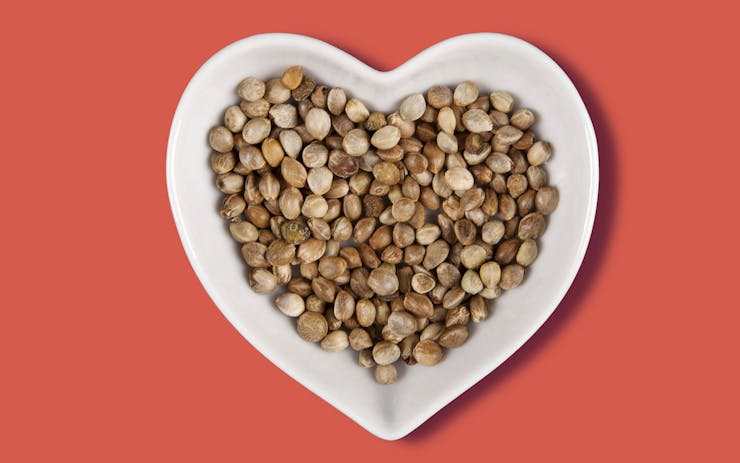Researchers at the University of Manitoba are investigating the use of hemp protein to prevent and treat high blood pressure, also called hypertension. The study of 35 hypertensive adult volunteers will also assess the effects of hemp protein on other physical attributes, including weight, cholesterol, body mass, hormones, and insulin production.
“Hypertension is a multifactor disease,” says Dr. Rotimi Aluko, the lead scientist for the clinical trial. “To get a full picture of the treatment, we need to know how the participants respond,” says Dr. Aluko, a professor in the Department of Human Nutritional Sciences at the University of Manitoba. “The why is sometimes more important than the results,” he says. The clinical trial follows previous studies at the University where hemp protein was found to be beneficial to hypertensive rats.The World Health Organization calls hypertension a global health crisis, responsible for 45-51% of global deaths, annually. Worldwide, over 1.3 billion people are hypertensive. Untreated, hypertension can lead to heart attack, stroke, kidney disease, vision loss, and sexual dysfunction, among other conditions.
“Drugs can have side effects, if we can demonstrate that this protein works to reduce hypertension, then people could take a natural protein instead.”
Recently, studies have shown that high blood pressure between the ages of 45 and 65 could lead to a higher risk of dementia later in life. In 2011, the United States spent US$46 billion on medicines, services, and missed days of work due to high blood pressure. Blood pressure is considered normal when the systolic (top number) is 120 and the diastolic (bottom number) is 80.
In the 22-week hemp protein study, the 35 adult volunteers with high blood pressure will be divided into three groups. All groups will have three 42-day periods during which the only food they consume is a fruit smoothie with protein powder taken twice a day. Each group, however, will have a different form of protein powder in their shakes: hemp, hemp plus peptides, or casein, which comes from milk. Participants will not know what form of protein they are consuming.
Dr. Aluko says that a smoothie was chosen for two reasons: it’s not hard to drink, and people can’t tell what kind of protein is in it. “A smoothie is easier for volunteers to consume, and you need to make sure participants are blind to the study,” says Dr. Aluko.
If the clinical trial shows that hemp protein can be used to lower blood pressure, Dr. Aluko says that one day hypertensive patients could take hemp protein instead of the commonly prescribed medicines. “Drugs can have side effects,” he says, “if we can demonstrate that this protein works to reduce hypertension, then people could take a natural protein instead.” Common side effects of high blood pressure medicines include diarrhea or constipation, cough, headache, skin rash and erectile dysfunction, among others.
The hemp protein powder for the clinical trial is being supplied by Manitoba Harvest, a cosponsor of the study. The protein powder is commercially available in the USA and Canada as Hemp Yeah! Max Protein. Manitoba Harvest has provided materials for three studies at the University of Manitoba. A 2017 experiment compared the effects of hemp consumption in the form of hemp protein or hemp snacks vs non-hemp controls. The goal of the experiment was to see how hemp products vs non-hemp controls impacted blood glucose, insulin, appetite, and food intake in adults.
The hemp protein for hypertension clinical trial is a recipient of Grant-in-Aid from the Heart and Stroke Foundation of Canada. According to a Foundation spokesperson, the grant was awarded to the study because “experts in the field judged it meritorious amongst the hundreds of applications against our rigorous standards of scientific excellence and relevance.”
If the clinical trial shows that hemp can help reduce blood pressure, then other treatment areas will be examined. “Following this trial, if we see a positive effect, then kidney disease will be next,” says Dr. Aluko. A 2011 experiment, also conducted at the University of Manitoba, showed that hemp protein had positive effects on rats with kidney disease, including normalizing heart size.
Although the hemp protein for hypertension clinical trial has generated a good response, Dr. Aluko says getting 35 people to sign up might take 6 months. Volunteers must live within a 45-minute drive from the research center in Winnipeg.
Dr. Aluko anticipates completing the study in 2019. The results should be published by the end of 2020.







